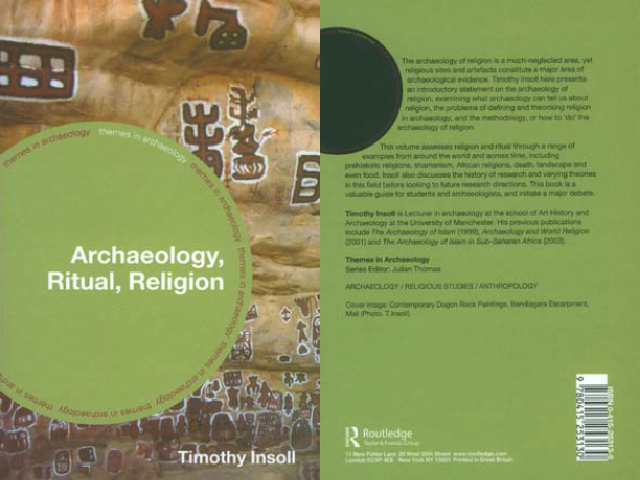Insoll, T. 2004. Archaeology, ritual, religion. – London, Routledge
Abstract
The contents of this compact book, 155 text pages, are clearly and logically divided in an ‘Introduction’, ‘History of research’, ‘Contemporary approaches’, some case studies and ‘Prospects’ with a conclusion. A bibliography and an index make up the service section.
In the first section it is pointed out that there are no clear-cut definitions of what constitutes religion or what a ritual is, as it is even in the study of contemporary phenomena already sometimes difficult to separate the secular from the non-secular in the non-western atmosphere. Another important point here is from which point in history ‘religion‘ originates. Some scholars advocate an origin as far back as Neanderthal man, but as it is doubtful whether he had any linguistic competence to speak of at all, the author rightly states that “…it can be suggested that grunts, prods and pointing are not the ideal means for perpetuating myth and ritual…”.
The ‘History of research’-chapter mentions side disciplines to the archaeology of religion like anthropology stating the problems with the interpretation of contemporary religions, let alone those with “living informants removed” (p. 35), and deriving the immaterial from material remains…and the history and phenomenology of religions. A history of approaches follows, from the early ones like the antiquarian and the Darwinist to the Marxist and New Archaeology approach as well as the direct analogy and the art-historical views. A separate paragraph is devoted to religious zealots who seek to ‘prove’ their convictions by interpreting archaeological ‘evidence’ in that direction. The biblical case, the search for ‘Exodus’ evidence, is a famous case in point. Read more...
Downloads




